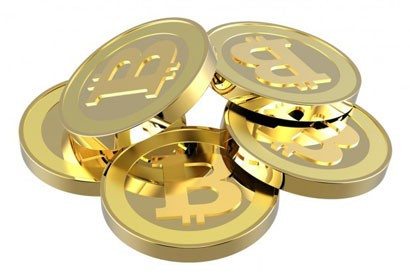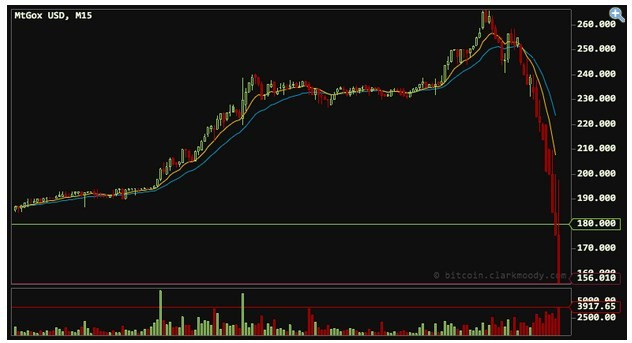Bitcoin Bubble Bursts as Gold Rush Floods Mt. Gox Exchange
A gold rush for Bitcoin caused the digital currency to lose more than $160 in value on 10 April, just hours after reaching a record high of $266 per coin, as exchanges slowed under the strain of new users causing traders to sell.

After quickly rising to $266 per coin in recent days, the crash saw the price tumble to as low as $105, before recoving to $150 the following day.
Initially, Bitcoin exchange TradeHill blamed the crash on a distributed denial of service (DDoS) attack on two of the currency's largest exchanges, Mt. Gox and Bitstamp, but this has now been denied by Mt. Gox.
Must Read: What is Bitcoin and how does it work?
Writing on its Facebook page, the Mt. Gox exchange said: "First of all we would like to reassure you but no we were not last night victim of a DDoS but instead victim of our own success."
The statement went on to explain that sudden interest in Bitcoin over recent days (as the price quickly doubled to over $200 and then up to $266) caused systems to lag. "As expected in such situations people started to panic, started to sell Bitcoins in mass, resulting in an increase of trade that ultimately froze the trade engine."
Bitcoins are a digital, online currency which are not issued by a central bank like dollars or euro. Instead, anyone can become a Bitcoin miner, which involves running a computer programme that works to solve a complex mathematical equation. Solving the equation reveals a 64 digit number and this number creates 25 Bitcoins for the miner.
These Bitcoins can then be used to buy goods online, much like using online banking or PayPal, but paying with Bitcoins is anonymous, leading some users to purchase drugs and other illegal products from 'Silk Road', the internet's black market.
Quantifying the increase in Bitcoin use over recent days, the exchange said that the number of trades executed tripled on 10 April and that 75,000 accounts were opened in the first ten days of April, more than the 65,000 created in the whole of March; Bitcoin has been seeing 20,000 new accounts added every day.
Although the latest problems have been blamed on increased popularity, just a week ago Mt. Gox admitted it had been the victim of a DDoS attack, resulting in system crashes and trading lag.

The attack brought to light Bitcoin's vulnerability, and particularly that of the Mt. Gox exchange, which handles more than 80 percent of all US dollar trades and more than 70 percent of all other currencies.
Those behind the DDoS attack would wait for the price to rise, sell, execute an attack which would slow servers, prompt traders to sell and lower the value of Bitcoins, before buying again at the lower rate once the servers and price have stabilised.
Mt. Gox said it has been "working around the clock" and plans to add more servers to increase network stability, which may result in temporarily closing the network for a couple of hours.
The Bitcoin bubble has been growing for the last 12 months, inflating the value of each of the 11 million coins in circulation from $20 to $40, but April has seen a rapid increase in value, breaking $100 on 3 April before reaching its $266 peak a week later.
Wednesday's rollercoaster took a turn for the bizarre when a Reddit user called 'Bitcoinbillionaire' gave away more than $13,600 worth of Bitcoins to apparently random Reddit users. The mystery person signed off with a quote from libertarian politician Ron Paul: "It's no coincidence that the century of total war coincided with the century of central banking."
© Copyright IBTimes 2025. All rights reserved.






















